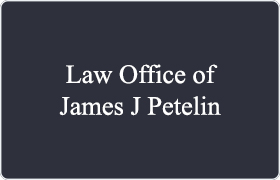 Auburn Misdemeanor Lawyers, California
Auburn Misdemeanor Lawyers, California
Sponsored Law Firm
-
 x
x

Click For More Info:
-
Law Office of James J Petelin
1550 Humboldt Road, Suite 4 Chico, CA 95928» view mapDivorce & Family Law Effective, Client-Focused Representation
James Petelin is a practicing attorney in the state of California who focuses on Family Law.
800-943-9701
Sponsored Lawyers
1-2 of 2 matches
2001 S St
Sacramento, CA 95811
Criminal, Expungement, Misdemeanor
The Law Offices of Paul R. Irish, located in Sacramento, California, is a law firm that specializes in providing legal services with a focus on family law.
(more)


 James Petelin Chico, CA
James Petelin Chico, CA AboutLaw Office of James J Petelin
AboutLaw Office of James J Petelin Practice AreasExpertise
Practice AreasExpertise

